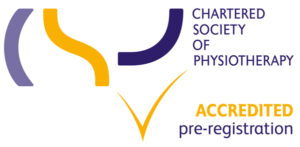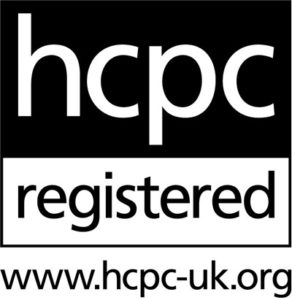What is the difference between a BSc degree in Physiotherapy and an MSc in Physiotherapy (pre-registration)?
An MSc in Physiotherapy (pre-registration) is a postgraduate Master’s programme which addresses the same fundamental knowledge, practical components and evidence-based physiotherapy practice as a BSc programme but has a greater emphasis on evidence-based research and in-depth critical thinking.
Can I apply for the MSc Physiotherapy (pre-registration) programme if I do not have a degree in a health or science-related programme?
Other degrees will be considered for physiotherapy courses provided applicants demonstrate an understanding of how their previous experience relates to the physiotherapy profession.
Why do the academic staff enjoy teaching in this programme?
The diversity within the student groups due to varied previous background experiences and undergraduate education, allows for a more in-depth exploration of the contemporary physiotherapy profession, interesting debates and conversations within the classroom.
What facilities are there to support my learning?
The MSc Physiotherapy (pre-registration) programme has purpose-built facilities with specialist equipment for teaching and learning to enable practical and simulated sessions. All students are fully provided with the technological support required to study in an active-blended learning format.
How is evidence-based research integrated into an active blended teaching approach in the curriculum?
The MSc Physiotherapy programme emphasises evidence-based research as a critical focus area. Students will learn to analyse research studies, assess their findings for clinical applications, and conduct their research projects. The programme employs an active blended learning approach, integrating classroom and online learning, and practical skills sessions, where students work collaboratively to enhance their problem-solving skills. Students engage in interactive online activities and practical skills sessions to apply theoretical knowledge to real-world situations, preparing them for the challenges of the profession.
How does the programme ensure that all material is contemporary and relevant to current service needs?
The academic team are specialists within their field and have strong links with practice, which ensures that all teaching and learning is informed by the latest research and best practice. The academic team are all registered physiotherapists who maintain their own continuing professional development and are actively engaged in conferences, research and clinical practice. There is also an emphasis on external and guest lecturers from practice/specialist fields as well as active involvement from our Service User and Carer Group, to ensure diversity and enhance the teaching and learning process. The programme is regularly reviewed through internal and external quality assurance processes, which also take into consideration the student voice, to ensure it remains contemporary, facilitates the learning process and is relevant to the changing needs of the profession.
How will I be assessed?
The programme utilises a variety of assessment strategies, including practical exams, presentations, essays, reflections, producing digital medium, and critical reports. Methods of peer feedback and assessment, group and individual work will all be utilised. All methods of assessment are aligned to the requirements of physiotherapy practice and what you will be expected to complete as a registered physiotherapist to drive the profession forward.
What kind of clinical practice experience can I expect during the MSc Physiotherapy programme?
The MSc Physiotherapy programme has strong links with clinical practice and provides students with an opportunity for experience within a variety of settings, sectors, and specialisms. This will include the NHS, private, voluntary and charity organisations, and will vary in length from 5-7 weeks for each placement block. The expected working week is 37.5 hrs. This is to ensure that every student completes the required 1000 hrs of practice, which is stipulated by our professional body. Practice placement experience is an important aspect of the qualifying programme, to allow the transference and application of theory into practice.
Students will also have the opportunity to participate in role-emerging placements, those aimed at social innovation in collaboration with local organisations, and others with a specific leadership or research focus. There are two assessed practice placement modules in year 1 of the course and three in year 2. They are completed under the supervision of registered physiotherapists and supported by the academic team.
What career prospects are available upon completion of the programme?
Graduates of the MSc Physiotherapy (pre-registration) programme will be eligible to apply for registration with both the Health and Care Professions Council (HCPC) and the Chartered Society of Physiotherapy (CSP). This will allow them to work as qualified physiotherapists in a range of settings, including the NHS, private, sports, voluntary and charity organisations. We host an Employability Fair annually, with large representation from local and national networks of employers which also includes workshops for preparation for applications and interviews for our newly qualified physiotherapists. There is also information on the UON website on Employability and the support schemes available.
What financial or otherwise support is available to students?
Please see the Fees & Funding section above. In addition, our Student Life webpage has a host of information on Fees & Funding as well as Academic Support, Wellbeing Support, Accommodation, Bursaries and Scholarships, Student Perks and a lot more. For International students, please see the dedicated International Student page.
How to contact?
If you need further information, please contact our MSc Physiotherapy academic team at: PhysioAdmissions@northampton.ac.uk.


